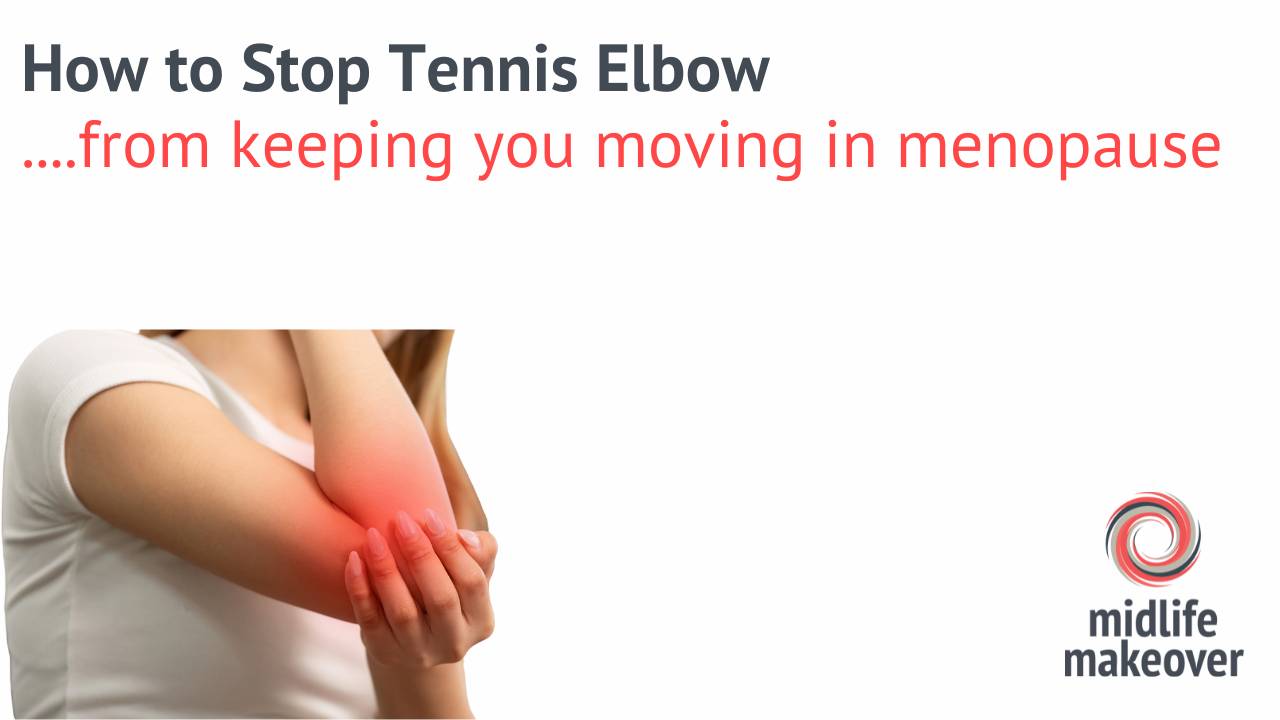What to do when HRT is not an option - 10 ways to ease menopause symptoms.
Mar 15, 2023
Is there an alternative treatment to HRT?
When you first start to think about menopause, it can feel overwhelming - just at the point when you already feel like you have multiple plates spinning, bang - the symptoms seem to come out of nowhere.
There’s advice everywhere — often conflicting — and it’s hard to know what, if anything, you should do to stay healthy, active, and sane through it all.
At the same time, many women are juggling busy lives — work, family, caring responsibilities — and menopause symptoms can feel like the final straw.
One of the biggest decisions is whether to speak to your doctor about HRT. Some women are keen to try it, some are unsure, and others can’t or simply don’t want to take it. If that’s you, you may feel a bit left out of the conversation — as though all the useful advice assumes you’re taking HRT.
This post will give you some positive, practical alternatives to explore.
Most of these approaches can be used on their own, before HRT, or alongside it if you choose to start later.

What is menopause?
Menopause is a natural stage of life. It happens when your ovaries slow down production of oestrogen and progesterone, leading to well known symptoms such as hot flushes, night sweats, vaginal dryness, mood swings, and sleep disturbances - plus many other symptoms such as dry eyes, joint stiffness and soreness and crawling under the skin sensations.
Some women glide through it with few symptoms. Others notice changes that affect their day-to-day life.
If your symptoms are mild, lifestyle changes such as regular movement, balanced nutrition, managing stress, and cutting back on caffeine or alcohol will make a noticeable difference.

What happens if you don't take HRT ?
Possibly nothing bad at all! Some women make the decision not to take HRT, they pay attention to their diet, their movement and exercise, the food and drink and they cope absolutely fine. However, if symptoms are more severe, and HRT isn’t an option, there are still many effective ways to manage symptoms and protect your long-term health.
The key areas that we worry about are the fact that low oestrogen levels can increase the risk of osteoporosis and heart disease, so if we don't replace the Oestrogen, then focusing on lifestyle becomes even more important to reduce those risks.
There are lots of reasons women might choose not to take HRT:
-
Concerns about health risks – despite updated research showing many of the earlier risks were way over stated, many women ( and still some doctors) are very cautious.
-
Medical history – for example, a personal or family history of breast cancer or blood clots may lead a woman to think she cannot take HRT
-
Preference for natural approaches – such as lifestyle changes, acupuncture, or herbal remedies.
-
Side effects or sensitivity – some women have tried HRT and found it gives them headaches, bloating, or mood changes and prefer to cope with the menopause symptoms instead.
-
Personal beliefs or values – some women have a strong desire to navigate through menopause and support her body without any medical support.
I strongly believe that every woman has the right to decide how she wants to navigate this stage of life — whether that includes HRT or not. What matters most is that the decision is informed, not influenced by fear or misinformation.
Many myths still circulate about HRT and risks such as blood clots, strokes, or even oestrogen-positive breast cancers, yet for some women, these risks may not actually apply.
That’s why it’s always worth speaking to a knowledgeable healthcare professional rather than relying on what you’ve seen on social media.
Whatever your decision, you’re not alone — and there are plenty of ways to feel well and confident in menopause and beyond.
My online Move Over Menopause programme offers a structured, evidence-based approach to feeling better without relying solely on HRT - the details are below!
Lifestyle changes for menopause symptom relief - they really work!
Lifestyle tweaks can have a powerful impact on how you feel. Here are the key areas to focus on:
-
Regular exercise – Strength work, walking, or swimming can improve mood, reduce hot flushes, and support sleep.
-
Balanced nutrition – Choose colourful, whole foods, lean protein, and healthy fats to support bones, energy, and weight.
-
Stress reduction – Try breathing exercises, journalling, or yoga to calm your nervous system.
-
Avoiding triggers – Reduce caffeine, alcohol, and spicy foods if they make symptoms worse.
-
Sleep routine – Create a wind-down ritual, aim for consistency, and keep your bedroom cool.
-
Hydration – Water helps with everything from dry skin to energy levels.
-
Quit smoking – It increases your risk of heart disease and bone loss.
It's important to note that the effectiveness of lifestyle changes can vary from person to person and typically we don't see results overnight, I work with my clients to help them put these changes into place and monitor the change it makes.
These changes don’t show results overnight, but they truly work. I help women build them in gradually inside Move Over Menopause so the shifts are sustainable — not overwhelming.
When HRT is not an option, exercise can be an effective way to help manage menopause symptoms.
Embarking on an appropriate fitness routine, designed specifically for menopause can help in the following ways:
Movement is one of the most powerful “medicines” for menopause.
A well-designed exercise routine can:
-
Reduce hot flushes and night sweats by helping your body regulate temperature.
-
Boost mood and confidence by releasing endorphins and reducing anxiety.
-
Support bone health with strength training and weight-bearing exercise.
-
Maintain a healthy weight and reduce risk of heart disease or diabetes.
-
Improve sleep quality and energy levels.

Is there a 'best diet' for menopause symptom relief
The right nutrition can play an important role in alleviating menopause symptoms. Here are some ways that proper nutrition can help:
There isn’t a one-size-fits-all “menopause diet,” but there are clear principles that help:
-
Balance your plate – protein, fibre, and healthy fats at each meal support energy and hormones.
-
Support your bones – include calcium (dairy, leafy greens) and vitamin D (eggs, oily fish, sunlight).
-
Choose heart-healthy foods – oats, berries, olive oil, and nuts protect against heart disease.
-
Stay steady – eat regularly to stabilise blood sugar and reduce mood swings.
-
Include phytoestrogens – foods like soy, flaxseeds, and lentils may help with vaginal dryness.

Alternative therapies for menopause symptoms.
There are a variety of alternative therapies that can help alleviate menopause symptoms. Here are a few examples:
- Mind-body techniques: Practices such as meditation, yoga, and tai chi can help reduce stress and anxiety, and improve sleep quality.
- Aromatherapy: This therapy uses essential oils from plants to promote physical and emotional well-being, some women find aromatherapy useful to alleviate their menopause symptoms.
- Acupuncture: This technique involves the insertion of fine needles into specific points on the body to improve energy flow and reduce symptoms such as hot flashes and night sweats.
- Herbal remedies: Certain herbs, such as black cohosh, red clover, and dong quai, have been used to alleviate menopause symptoms. It's important to note, however, that the safety and effectiveness of these herbs is not always well-established, and they may interact with other medications or have side effects.
- Exercise: Regular exercise can help reduce menopause symptoms, including hot flashes, mood changes, and sleep disturbances.
- Massage therapy: Massage can help reduce muscle tension, improve relaxation, and promote better sleep.
- Cognitive-behavioral therapy (CBT): CBT can help women manage symptoms such as anxiety, depression, and irritability by teaching coping strategies and cognitive restructuring.
- Diet and nutrition: Eating a well-balanced diet that includes plenty of fruits, vegetables, whole grains, lean protein, and healthy fats can help reduce symptoms such as hot flashes, mood changes, and weight gain.
It's important to note that while these alternative therapies can be effective for some women, they may not work for everyone, and some may have potential risks or side effects. It's always best to consult with a healthcare provider before trying any new therapy, including alternative therapies, to ensure that it is safe and appropriate for your individual needs.
There are other medications besides hormone replacement therapy (HRT) that can be used to alleviate menopause symptoms, depending on the individual's specific symptoms, medical history, and preferences. These may include:
- Low-dose antidepressants: Antidepressants, such as selective serotonin reuptake inhibitors (SSRIs) or serotonin-norepinephrine reuptake inhibitors (SNRIs), may be prescribed to alleviate hot flashes, night sweats, and mood swings.
- Gabapentin: This medication is typically used to treat seizures or nerve pain, but it can also help reduce hot flashes and improve sleep.
- Clonidine: This medication is commonly used to treat high blood pressure, but it can also be effective in reducing hot flashes.
- Ospemifene: This medication is an oestrogen agonist/antagonist that can help alleviate vaginal dryness and painful intercourse.
- Vaginal oestrogen: Oestrogen creams, tablets, or rings inserted directly into the vagina can help alleviate vaginal dryness, itching, and discomfort without significantly increasing oestrogen levels in the bloodstream.

Move Over Menopause - a 6 month life changing programme.
I strongly believe that in addition to, or instead of, HRT, it is vital to take a good long look at the way we live in menopause and beyond. My online programme helps women to put some of these changes in place, both for symptom relief and optimal health. It's friendly, supportive, LIVE and recorded and can really TRANSFORM how you are feeling now, back to feeling how you want to be again!








